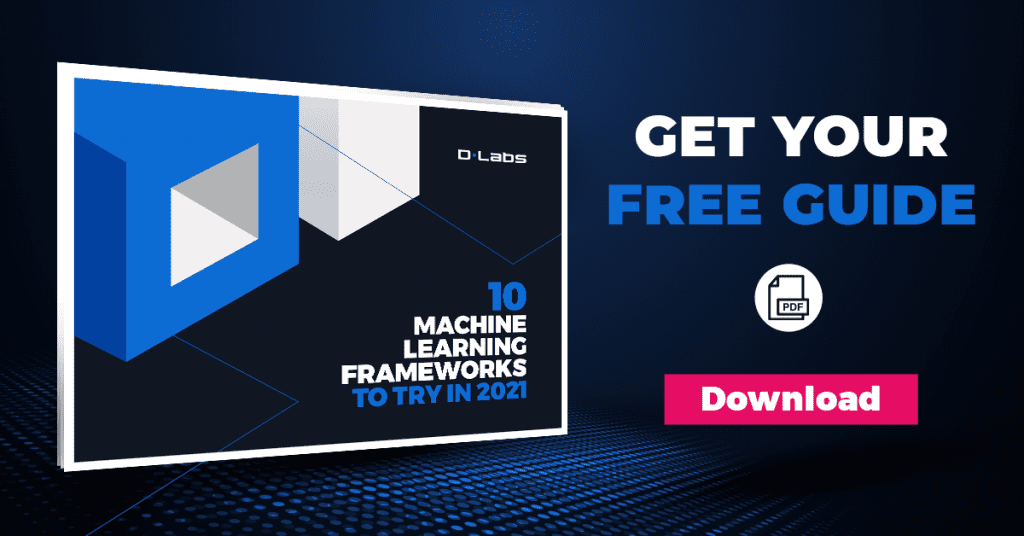Artificial intelligence technologies are very often confused with pure science fiction, like creating virtual human-like personalities, or emulating the ability to consciously control thinking-like processes. Very often, when people are faced with the brutal truth that AI is actually a lot simpler and doesn’t have those capabilities, they get discouraged and lose interest in AI. And this is where they err.
Whilst incapable of emulating personality or consciousness, regardless of how you define it, AI can learn to be really good at emulating some human-like intuitions. What’s more, with AI we can automate those intuitions. Let’s take a look at an example of how we can make use of that and improve our SEO thanks to AI.
How many keywords can you come up with?
Let’s say you’re an owner of a website and you want to come up with some good keywords in order to get yourself a better position in web search results. Nothing simpler, you might think, let’s jot down the first few words that come to mind and use them as keywords. Well… Not really.
In practice, you’ll end up running out of ideas somewhere around the fifth keyword, and you may not make a lot of progress beyond that. But as any SEO expert will tell you, five is not even close to enough. So, what now? Your options are:
1. Having someone else try and come up with more keywords–but they, just like you, are going to get stuck on their fifth keyword, and three of those keywords you’ll already have jotted down.
2. Looking through your whole webpage for inspiration. But you probably don’t have the time to do that, do you?
3. Use one of the keyword research tools available on the market to look through a really big pile of keywords that the users of the web have also searched for while they searched for the keywords you already have. But most of them will not be really relevant to what you offer on your website.
There isn’t much that AI can do about the first option since creativity as we, humans, perceive it, is out of its reach so far. But what about the remaining two options?
You could spend some time doing all of that manually, or you could have someone do that for you and pay for their time. But that’s awfully expensive, and are you really sure that, not being an expert in SEO, you’ll get this right?
The Answer
The answer is simple — AI.
Although you can’t really yet engage in intelligent conversations with machines, that doesn’t mean they can’t do a useful thing or two with natural language. One of the things machines are pretty good at is detecting which words or phrases seem to be the most important in the text they are given and improving SEO.
For example, if we use a little AI‑magic on the website of one world-famous chef, we can automatically extract keywords like:
easy
salad
chicken
food
Italian
recipes
Italy
recipe
sauce
pasta
healthy
chocolate
tomato
fresh
mozzarella
… (and the list goes on)
All of that with no manual labor. You just give the URL of your webpage to a program and you get a list of relevant keywords. You might now ask:
But what if some good, relevant words are not even on my site?
Well, that’s not much of a biggie too. Thanks to some recent advances in the field of natural language processing (NLP), we also have the tools to easily search for words similar to a given word. Let’s have a look at the above list with three nearest neighbors added to each of the original words.
easy — easier, quick, way
salad — pasta, soup, salads
chicken — meat, fried, pork
food — products, coffee, supplies
Italian — Spanish, Italy, French
recipes — recipe, cookbooks, dishes
Italy — Spain, Italian, Portugal
recipe — recipes, dessert, delicious
sauce — tomato, vinegar, spicy
pasta — sauce, baked, salads
healthy — healthier, better, care
chocolate — cream, cake, caramel
tomato — avocado, cucumber, sauce
fresh — add, sour, dried
mozzarella — cheese, pimento, feta
…
Isn’t that neat? Even if not all of the words will fit your website perfectly, you can easily get quite long a list of keywords that are at least somewhat relevant to your content. And we mean really relevant. Some of the keyword research tools currently on the market, when fed with the keyword ‘SEO’ (as in Search Engine Optimization), start spitting out Korean names as related keywords.
See also: AI And Marketing: How To Boost Brand Marketing With Image Recognition Software
And we’ve done it!
When we combine the above list with additional data on how much traffic a keyword may bring to a site and choose the top ones, we’ve just saved our hypothetical chef and his people quite a few hours of serious brainstorming that they didn’t even have the time nor enthusiasm for in the first place. And they would have forgotten about mozzarella anyway.






